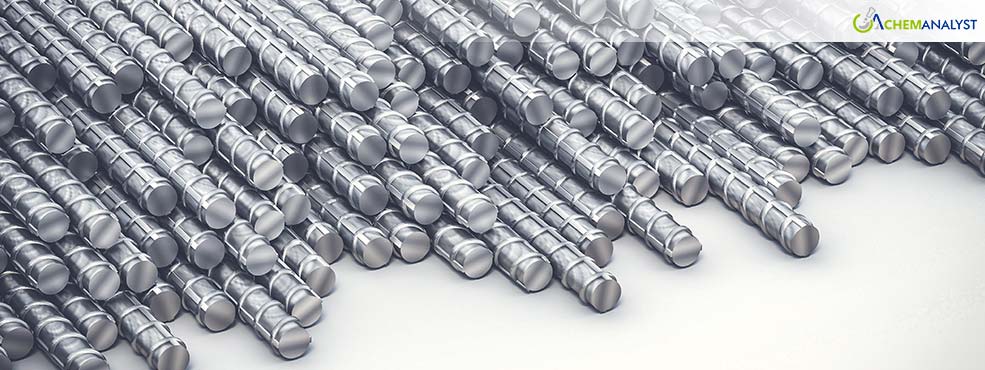Welcome To ChemAnalyst

As the week closed on 30th May, the international steel rebar market is experiencing a distinct divergence, with Germany being one of the stabilizing pillars, and the United States, UK and China grapple with price reductions due to the burden of the changing supply-demand balances and overall economic issues.
USA steel rebar prices fell, driven by an increasing gap between rising supply and softening demand. In supply, raw steel production in the domestic market improved, with modest improvement in capacity utilization, indicating potential production recovery. Demand is, however, declining as construction slows, and developers delay or reduce projects. This mismatch—characterized by increasing supply and weakening demand—placed downward pressure on prices and prompted more restraint in buying.
German steel rebar prices are firm. On the supply side, steel rebar production in Germany has remained steady, with local steelmakers sustaining consistent output levels. Additionally, there has been no short-term import pressure, with local manufacturers acting to meet much of the demand. Steel rebar demand, an important ingredient in construction and infrastructure development projects, was firm over the period. This stability was supported by the ongoing strong performance of the industrial sector. As industrial activity continued at its pace. While downstream sectors have seen moderate expansion, demand for steel rebar has been steady, promoting the market's stable pricing.
Meanwhile, UK steel rebar prices decreased, reflecting the economy which consists of steady supply and low demand. British Steel, one of the country's biggest producers, has been in the news because it receives direct government paying subsidies aimed at ensuring consistent raw material flows. On the other hand, demand has not been strong, with end users showing weak participation in the market. Others have adopted a wait and see attitude which has contributed to the decrease in domestic prices recently.
Chinese steel rebar prices decreased in the face of continuously weak demand. End-user sector purchases were slow, and they continued to be hampered by poor weather that slowed down construction and production work. Introducing new national standards generated uncertainty in the market, leading buyers to hold back. Social inventory patterns also reflected weaker demand as most buyers postponed new orders. Piling on the pressure were concerns over the threat of a possible global recession, which kept market mood subdued from topping up inventories to pre-existing levels.
According to market participants, steel rebar prices in Germany have remained stable. In contrast, prices in China, UK and the US are likely to decline due to abundant global supply and diminishing export opportunities, posing a significant challenge for the market moving forward.
We use cookies to deliver the best possible experience on our website. To learn more, visit our Privacy Policy. By continuing to use this site or by closing this box, you consent to our use of cookies. More info.
